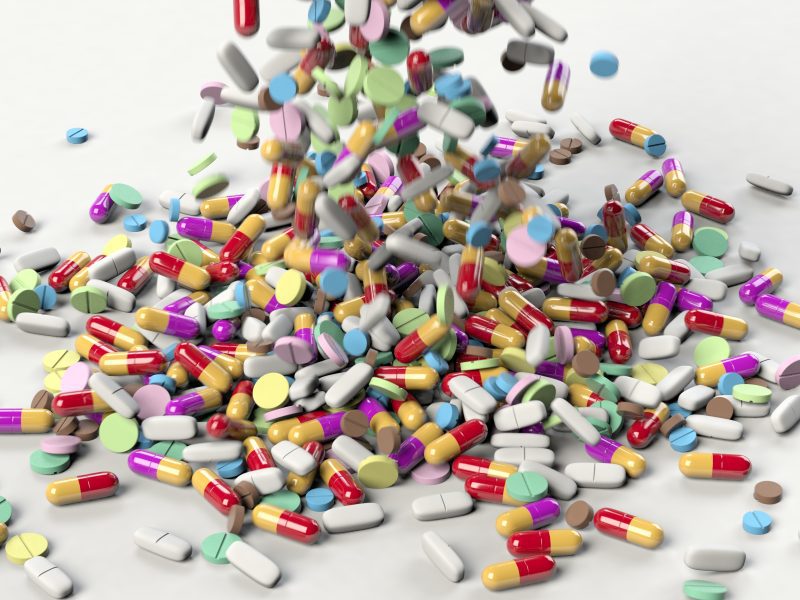Hydration is essential for human health, yet many people underestimate the importance of drinking enough water. Water makes up around 60% of our body weight and plays a crucial role in various bodily functions, including cognitive function, physical performance, and digestion. Dehydration, which occurs when the body loses more water than it takes in, can have serious consequences for our health. In this essay, we will explore the benefits of hydration, the risks of dehydration, the factors that affect our hydration needs, and tips for staying properly hydrated. By the end of this essay, you will have a better understanding of why drinking water is essential for your overall health and well-being.
The Benefits of Hydration

Hydration is critical for overall health and well-being, as it plays a vital role in various bodily functions. Here are some of the key benefits of staying properly hydrated:
- Improved Cognitive Function: Proper hydration is essential for maintaining good cognitive function. Studies have shown that even mild dehydration can impair cognitive performance, including memory, attention, and reaction time. Dehydration can also cause headaches, which can further impair cognitive function. By staying properly hydrated, you can boost your brainpower and improve your ability to focus and think clearly.
- Better Physical Performance: Hydration is especially important for athletes and active individuals. Dehydration can lead to fatigue, cramping, and decreased physical performance. Drinking enough water before, during, and after exercise can help maintain endurance and strength, and prevent dehydration-related injuries.
- Healthy Skin and Hair: Drinking enough water is crucial for maintaining healthy skin and hair. Water helps to hydrate skin cells, improving elasticity, and preventing wrinkles. Adequate hydration can also prevent dry, flaky skin and promote a healthy, glowing complexion. Additionally, water is essential for maintaining healthy hair and preventing dryness and breakage.
- Digestive Health: Water plays a crucial role in digestive health by helping to break down food and move it through the digestive tract. Dehydration can cause constipation and bloating, as well as lead to other digestive issues. Drinking enough water can help maintain regularity and prevent these problems.
- Detoxification: Water is necessary for flushing toxins and waste products out of the body. Adequate hydration is essential for maintaining healthy liver and kidney function, which are responsible for filtering toxins from the blood. By staying hydrated, you can support your body’s natural detoxification processes and improve your overall health.
Summary
Proper hydration is essential for maintaining good health and well-being. By drinking enough water, you can improve cognitive function, boost physical performance, promote healthy skin and hair, support digestive health, and aid in detoxification. So, make sure to drink plenty of water throughout the day and stay properly hydrated for optimal health benefits.
The Risks of Dehydration

Dehydration occurs when the body loses more water than it takes in, which can have serious consequences for our health. Here are some of the risks associated with dehydration:
- Impaired Cognitive Function: As mentioned earlier, dehydration can impair cognitive performance, including memory, attention, and reaction time. In severe cases, dehydration can cause confusion and disorientation.
- Increased Risk of Heat-Related Illnesses: When the body is dehydrated, it can’t regulate its temperature as effectively. This can lead to an increased risk of heat exhaustion and heatstroke, particularly during hot weather or intense exercise.
- Kidney Stones: Dehydration can increase the concentration of minerals and salts in the urine, leading to the formation of kidney stones. These painful stones can cause blockages in the urinary tract and may require medical treatment.
- Digestive Issues: Dehydration can lead to constipation and bloating, as well as other digestive issues. It can also increase the risk of developing ulcers in the stomach or intestines.
- Muscle Cramps: Dehydration can cause muscle cramps, particularly during exercise. These painful cramps can limit physical performance and may require rest and rehydration to alleviate.
- Increased Risk of Urinary Tract Infections: Dehydration can lead to an increased risk of urinary tract infections, as it can reduce the body’s ability to flush out bacteria and other harmful substances.
Summary
Dehydration can have serious consequences for our health, both in the short term and long term. It’s essential to stay properly hydrated throughout the day, particularly during hot weather or intense exercise. If you’re experiencing symptoms of dehydration, such as thirst, dry mouth, or dark urine, make sure to increase your water intake and seek medical attention if necessary.
Factors That Affect Hydration Needs

Our hydration needs can vary depending on several factors, including:
- Activity Level: Individuals who are more physically active or engage in regular exercise may require more water to replace fluids lost through sweating.
- Climate and Temperature: Hot and humid weather can cause the body to lose more water through sweating, making it important to drink more water to stay properly hydrated.
- Body Size and Weight: Larger individuals may require more water to stay hydrated than smaller individuals.
- Gender: Men generally have a higher percentage of body water than women and may require more water to stay hydrated.
- Health Status: Certain health conditions, such as diabetes or kidney disease, can affect the body’s ability to regulate water balance and may require adjustments to fluid intake.
- Pregnancy and Breastfeeding: Pregnant and breastfeeding women require more water to support the increased demands of their body and to support the growth and development of the baby.
- Alcohol and Caffeine Consumption: Alcohol and caffeine are diuretics, which means they increase the production of urine and can lead to dehydration if not balanced with adequate water intake.
Summary
Our hydration needs can be influenced by several factors, including activity level, climate and temperature, body size and weight, gender, health status, pregnancy and breastfeeding, and alcohol and caffeine consumption. It’s important to be aware of these factors and adjust our fluid intake accordingly to stay properly hydrated and maintain good health.
Tips for Staying Hydrated

Staying hydrated is essential for our health and well-being. Here are some tips to help you stay properly hydrated:
- Drink Plenty of Water: Drinking water is the best way to stay hydrated. Aim to drink at least eight glasses of water a day, and more if you’re physically active or in hot weather.
- Eat Water-Rich Foods: Many fruits and vegetables are high in water content, such as watermelon, cucumber, and lettuce. Including these foods in your diet can help you stay hydrated.
- Limit Caffeine and Alcohol: Caffeine and alcohol can dehydrate the body, so it’s important to limit your consumption of these drinks and balance them with water intake.
- Set Reminders: It’s easy to forget to drink water throughout the day, so set reminders on your phone or computer to prompt you to drink water at regular intervals.
- Carry a Water Bottle: Carrying a reusable water bottle with you can make it easier to stay hydrated throughout the day. Keep it with you at all times and refill it as needed.
- Use a Hydration App: There are many hydration apps available that can help you track your water intake and remind you to drink water at regular intervals.
- Monitor Your Urine: The colour of your urine can be a good indicator of your hydration status. If your urine is dark yellow or amber-coloured, it’s a sign that you need to drink more water.
Summary
Staying hydrated is crucial for our health and well-being. By following these tips, you can ensure that you’re getting enough water to support your body’s needs and maintain optimal health.
Wrapping It All Up
In conclusion, staying hydrated is essential for our health and well-being. Drinking enough water and staying properly hydrated can help improve cognitive function, boost energy levels, aid digestion, regulate body temperature, and support overall health. On the other hand, dehydration can have serious consequences for our health, including impaired cognitive function, heat-related illnesses, kidney stones, digestive issues, muscle cramps, and an increased risk of urinary tract infections.
Factors that can affect our hydration needs include activity level, climate and temperature, body size and weight, gender, health status, pregnancy and breastfeeding, and alcohol and caffeine consumption. By being aware of these factors and following tips for staying hydrated, such as drinking plenty of water, eating water-rich foods, limiting caffeine and alcohol, setting reminders, carrying a water bottle, using a hydration app, and monitoring urine colour, we can maintain optimal hydration and support our overall health.
So, let’s make a habit of drinking enough water and staying properly hydrated to support our body’s needs and enjoy the many benefits of staying hydrated.
Read More
- The Importance of Testosterone and Why We (All) Need It
- Boosting Your Immune System Means Living Your Best Life
- Why Fighting Chronic Stress Is Everybody’s Fight
- The Best Skincare Products for Acne-Prone Skin
- Alcohol Consumption Damage to the Body, Mind, and Family
Disclaimer: The information provided on Healthy Lifestyles for All is intended for general educational purposes only and should not be considered as medical advice. Please consult with your GP or other health professional before making any significant changes to your diet, exercise routine, or any other aspect of your lifestyle. We are not responsible for any adverse effects or consequences resulting from the use of the information provided on our blog.
Comments: I hope you enjoyed reading this post as much as I enjoyed writing it. If you liked it, please leave a comment. If you didn’t like it, disagree with something I have written (I’m okay with that), or think I got something wrong (that’s okay too), please leave a comment as well. We only truly learn from our mistakes, so I am happy to have mine pointed out.
Affiliate Links: Please also note that I may make a small amount of money if you buy one of the products I recommend in any of my blog posts. Rest assured that I have done my own due diligence, and only recommend products that have been tried and tested, and have extremely good feedback. Additionally, many of the products I recommend have 30 or 60-day money-back guarantees, so you can buy in the confidence that if a particular product is not right for you, you can get a refund.

